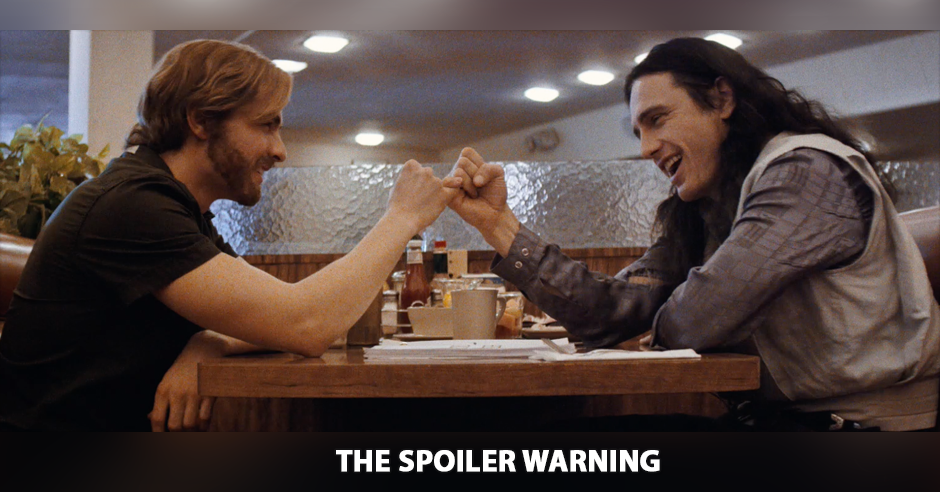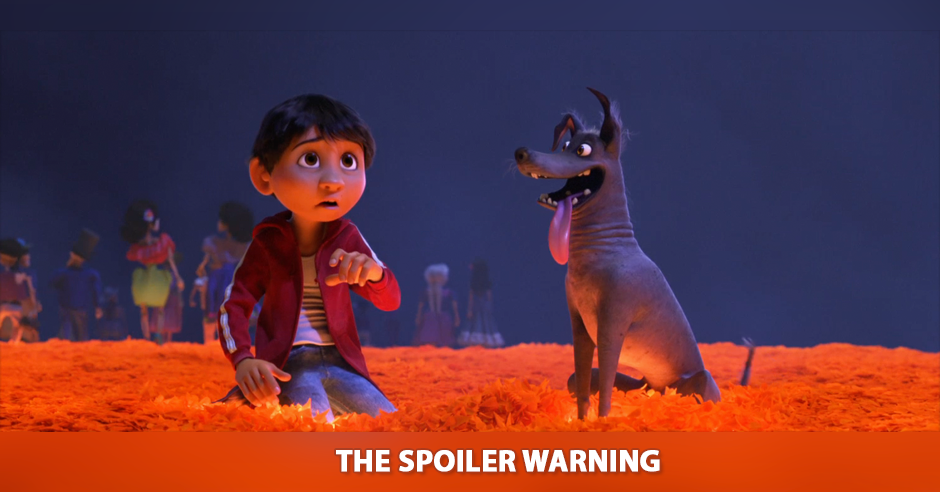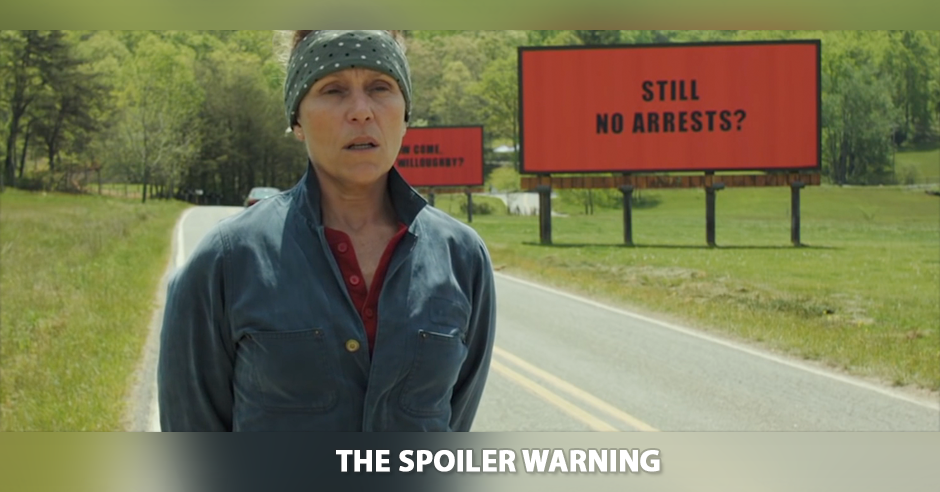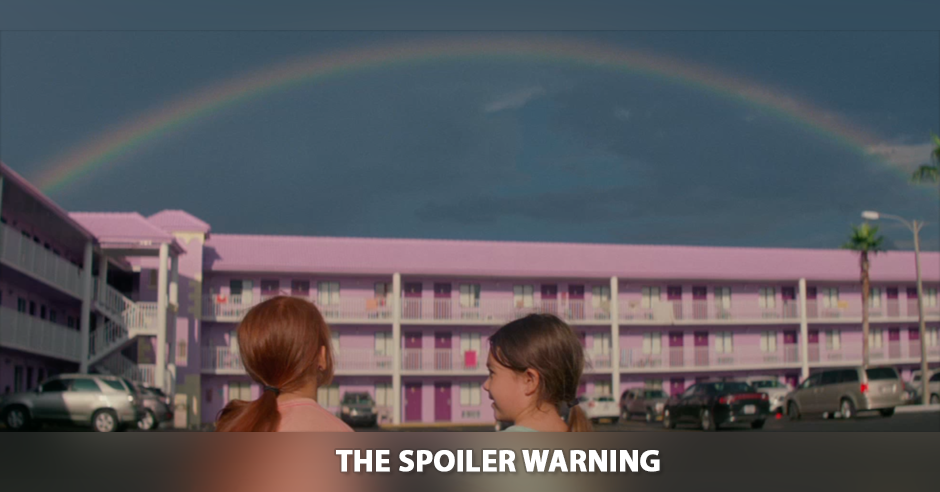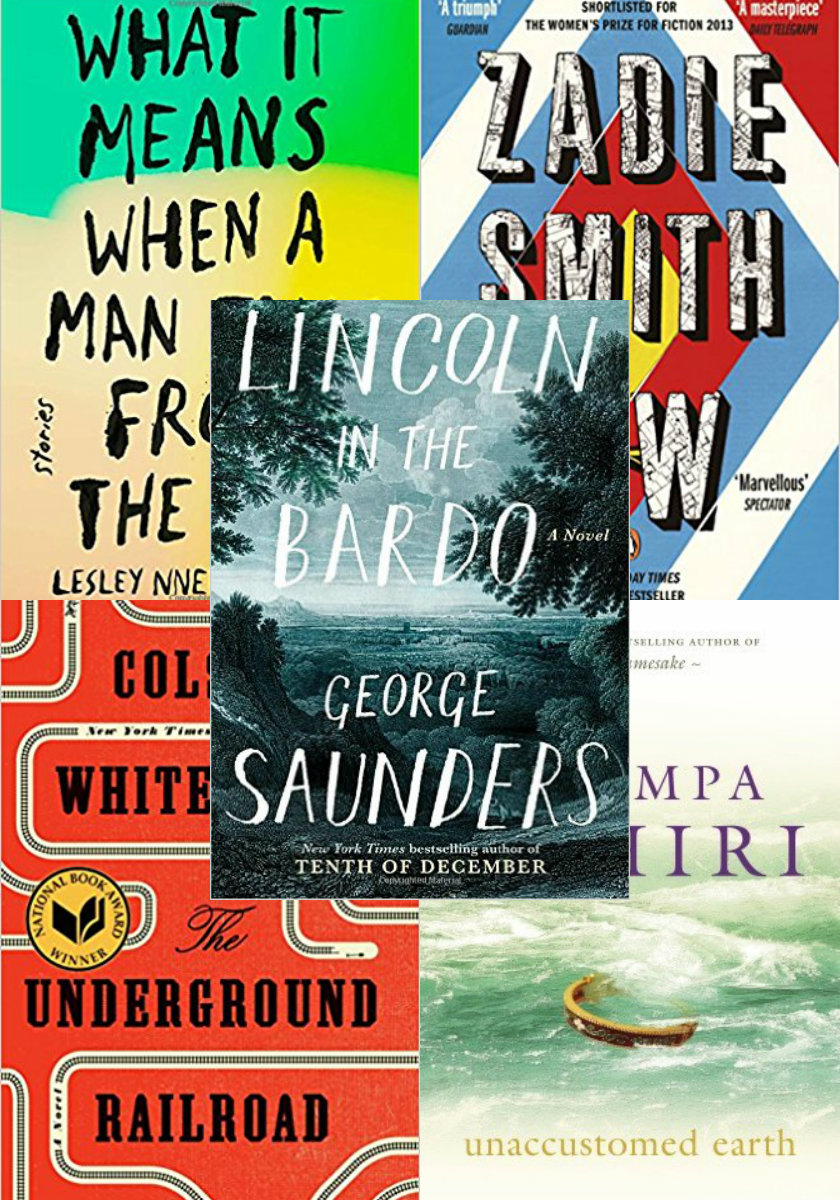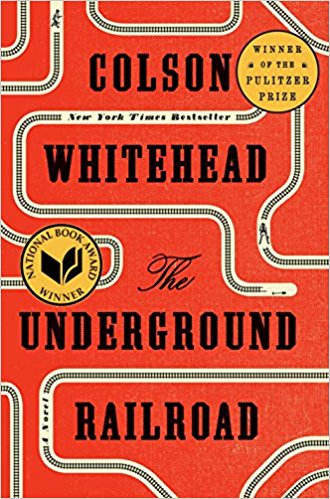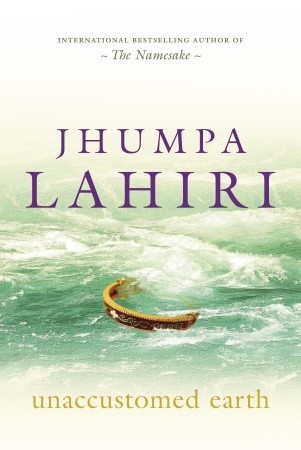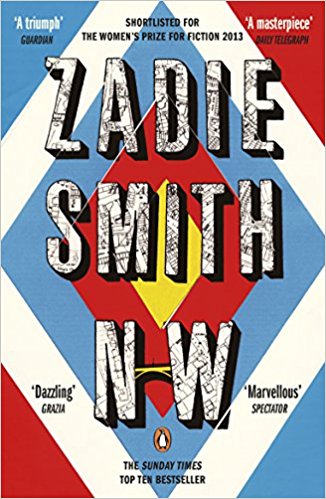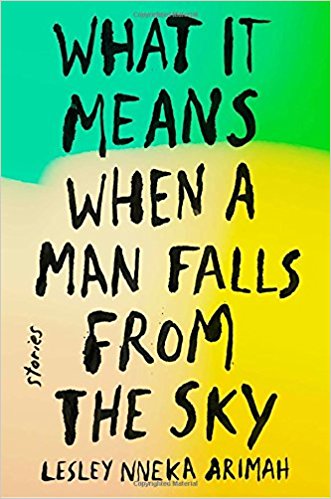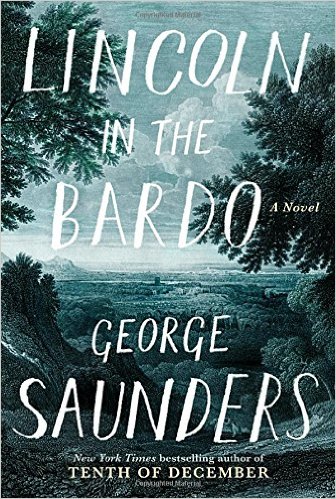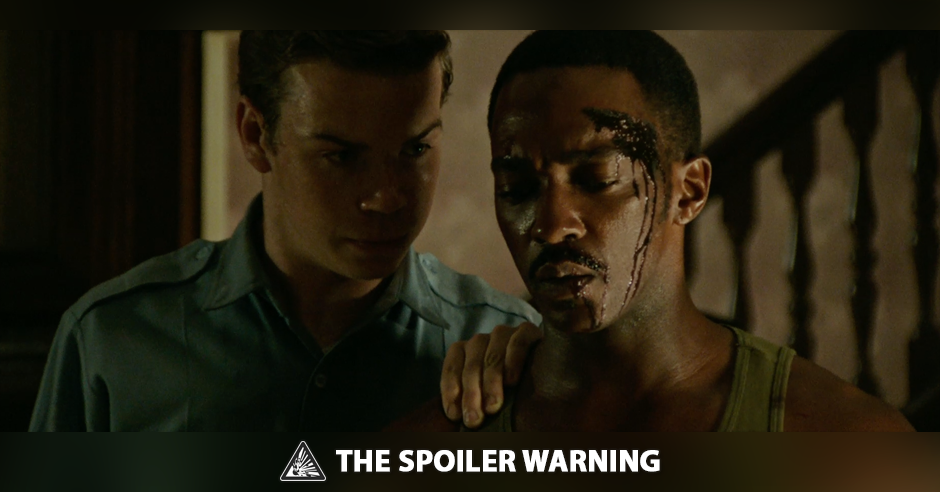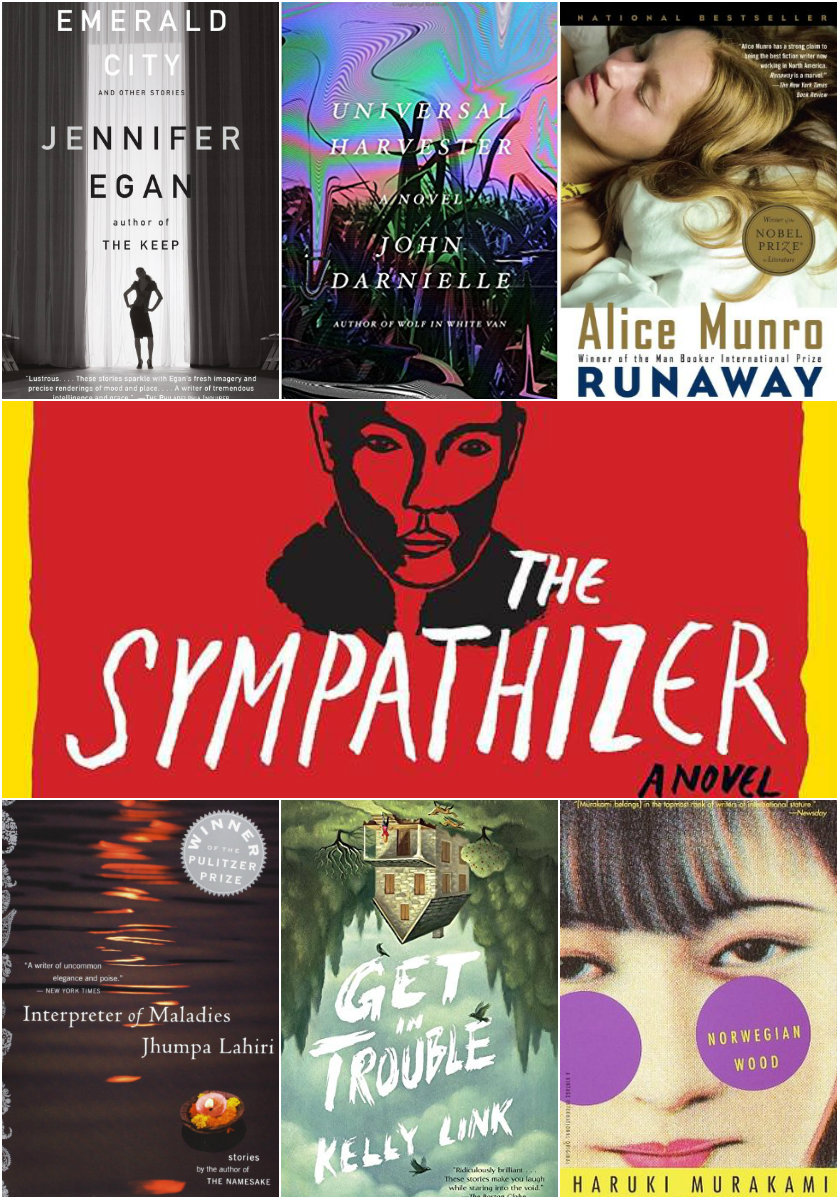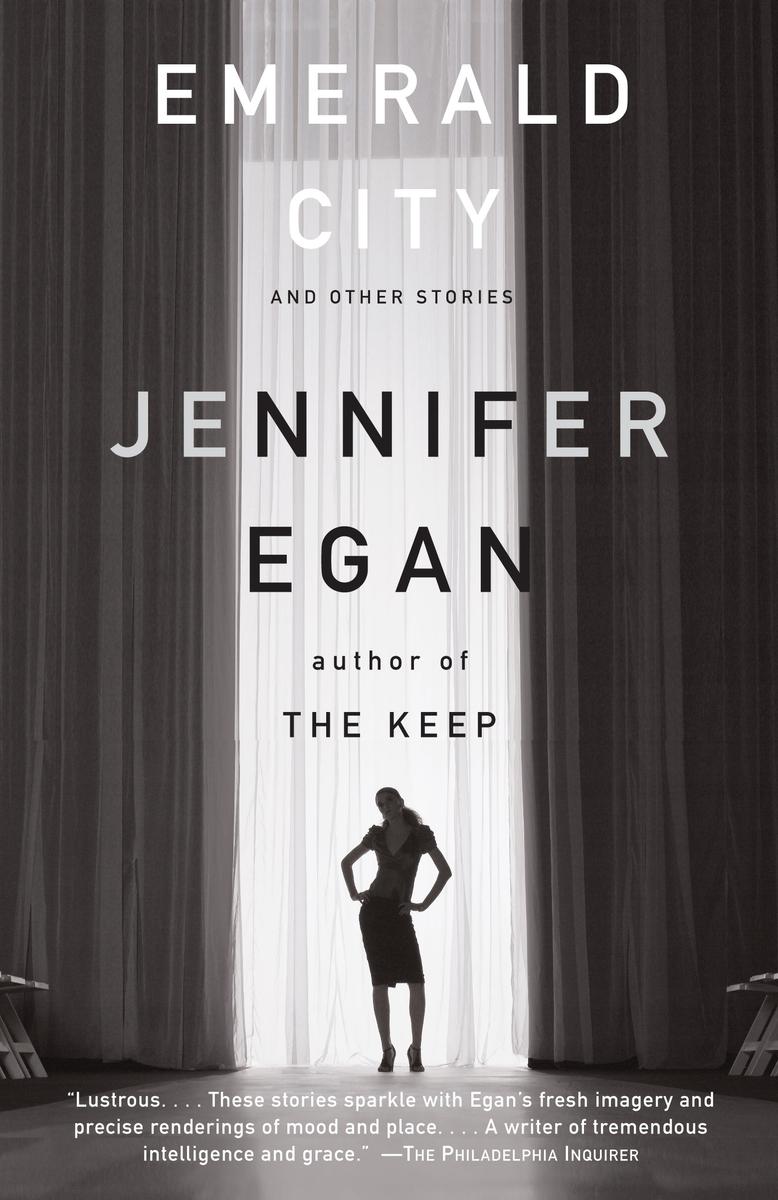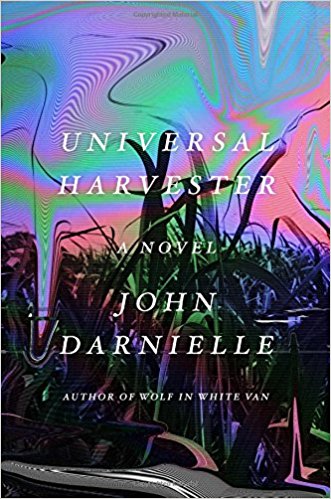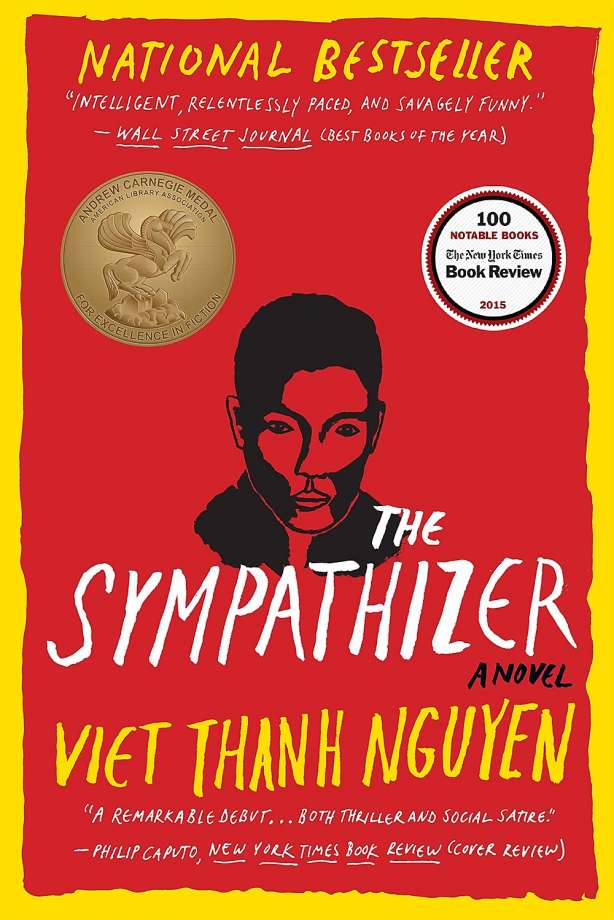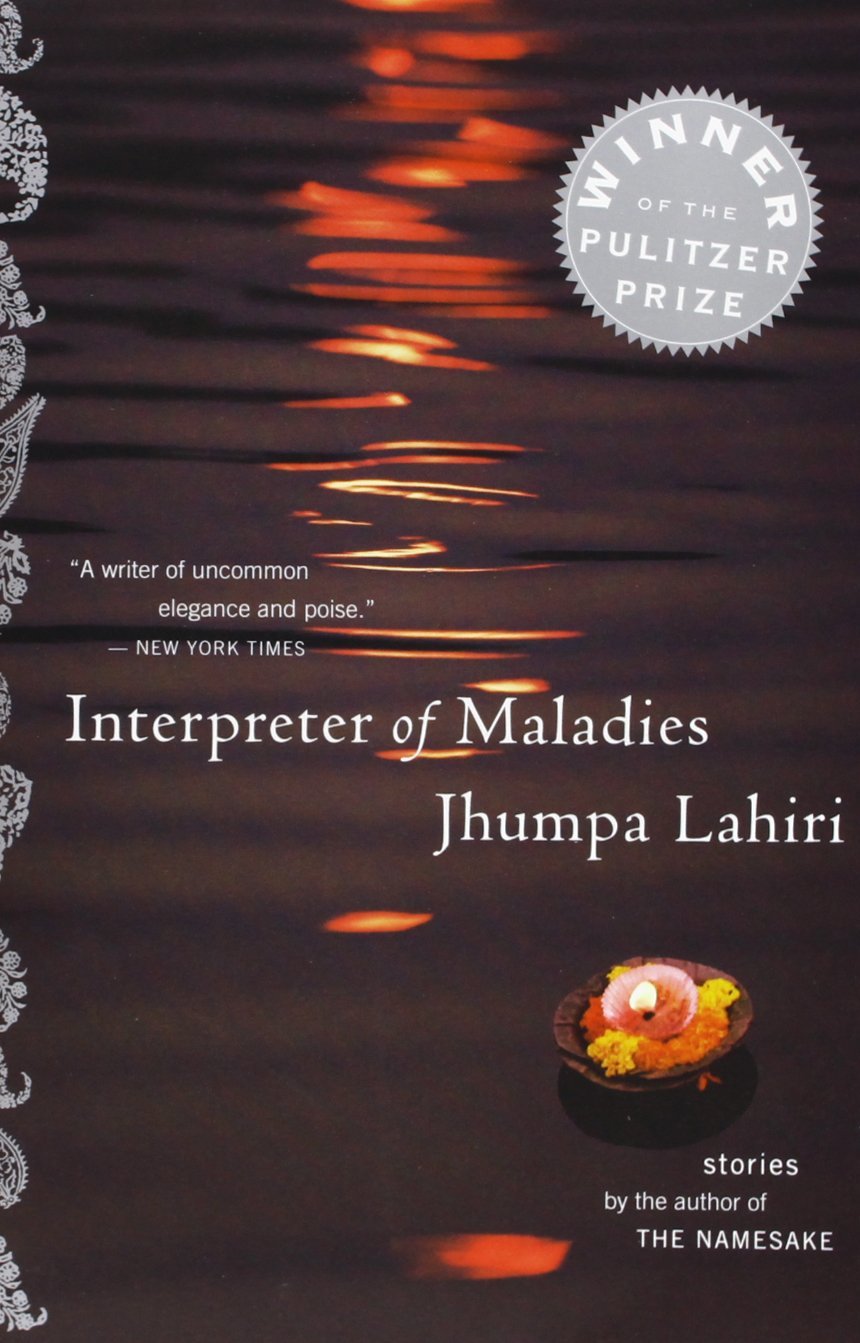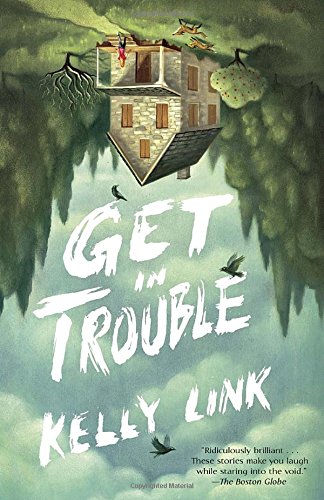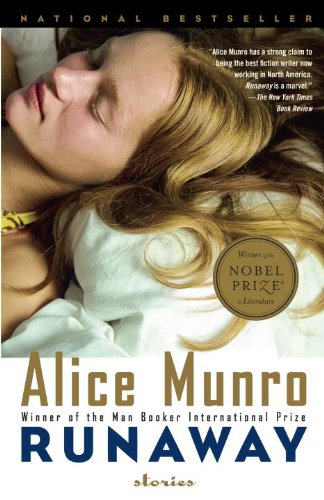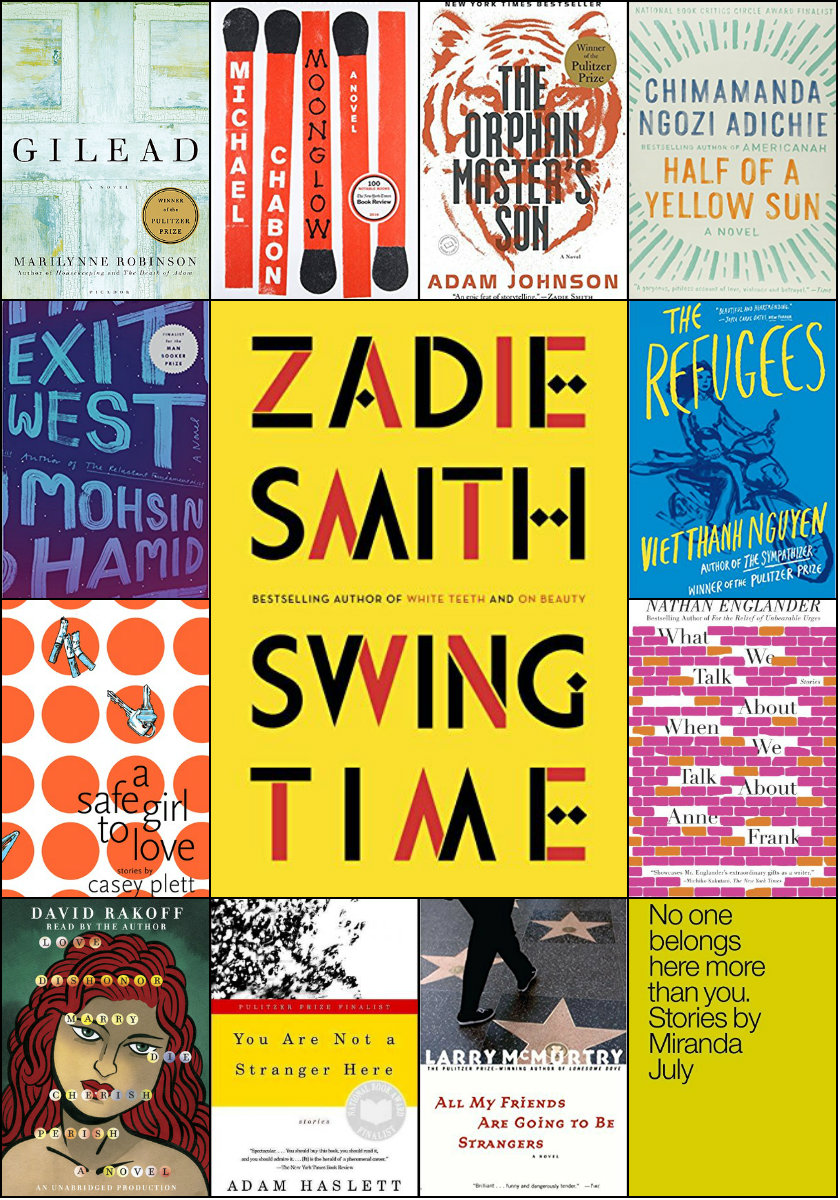
October-November Fiction Roundup! A slow October tumbled into a overcompensating-ly productive November as far as reading is concerned. All in all I finished thirteen works of fiction, split fairly evenly between full-length novels and short story collections / novellas: Love, Dishonor, Marry, Die, Cherish, Perish (3.5/5), The Refugees (3/5), Swing Time (5/5), All My Friends Are Going To Be Strangers (2.5/5), What We Talk About When We Talk About Anne Frank (4/5), Moonglow (5/5), Exit West (4/5), The Orphan Master’s Son (4/5), You Are Not A Stranger Here (4.5/5), Half of a Yellow Sun (4/5), Gilead (4.5/5), A Safe Girl To Love (4/5), No One Belongs Here More Than You (3.5/5). This is a big list, so pardon the length. (NB: my rating system is arbitrary and totally nonlinear and is liable to change every few days. Apples to oranges, etc.)
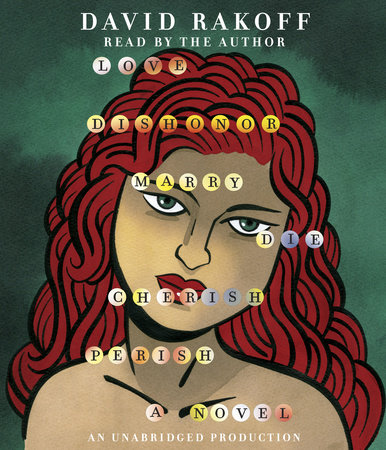
Love, Dishonor, Marry, Die, Cherish, Perish (3.5/5) had no right to be as moving as it was. The novella (by frequent This American Life contributor David Rakoff) is written entirely in rhyming verse, and, yes, that is absolutely a gimmick. Here’s the thing, though: sometimes gimmicks work. Here, the audacity of the conceit (telling a very adult drama via sing-song couplets) acts as a sort of emotional Trojan Horse; like the opening scene of Up or the ending of Tangerine, its moments of pathos hit harder precisely because you’d let your guard down. Rakoff’s nonfiction tended to be shrouded in self-conscious irony, more interesting in perceived “wit” than whatever point it happened to be making (see: the majority of Half Empty). Here, he is nothing if not sincere. Hearing him gently narrate this, his own voice was weakened from the cancer which would soon take his life, made the conceit feel…daring. Powerful. Made it feel like a thesis.
“The facts were now harder, reality colder
His parasol no match for that falling boulder.
And so the concern with the trivial issues:
Slippers nearby and the proximate tissues
He thought of those two things in life that don’t vary
(Well, thought only glancingly; more was too scary)
Inevitable, why even bother to test it,
He’d paid all his taxes, so that left … you guessed it.”

Viet Thanh Nguyen’s latest collection, The Refugees (3/5), continues with the same themes as his Pulitzer-winning (and, I might add, fantastic) The Sympathizer: the hardships of immigration, the gap between Western perceptions of the Vietnam War and the experience of its participants, the particular strain that gap has on the psyche. At only 200 or so pages, it’s a quick read — but, for whatever reason, it took me longer than anything else on this list. I just couldn’t seem to fully latch on to it: every time I tried picking it up, something else would immediately dislodge it as being more pressing. The writing is top-notch, filled with tenderly-constructed characters who Nguyen clearly cares about. It’s everything I ought to love. But it’s a slow, slow burn. Maybe I have a tendency to pigeonhole authors (e.g. why do I love Jhumpa Lahiri’s near-identical pace?), but from Nguyen, I was craving something more urgent, more insisting. This one didn’t quite do it for me.
“The world was muzzled, the way it would be ever afterward with my mother and father and myself, none of us uttering another sound on this matter. Their silence and my own would cut me again and again. But what pained me the most was not any of these things, nor the weight of the men on me. It was the light shining into my dark eyes as I looked to the sky and saw the smoldering tip of God’s cigarette, poised in the heavens the moment before it pressed against my skin.”
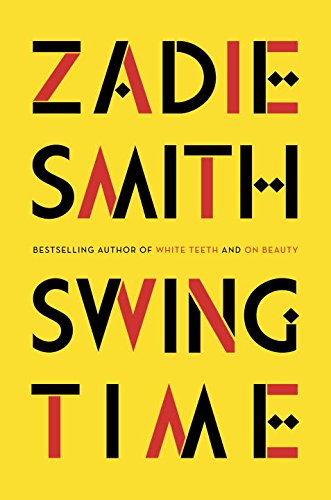
Oh, Zadie. Maybe I’m becoming too predictable in my tastes, but I absolutely loved Swing Time (5/5). And, oddly, it has few of the stylistic trademarks that attracted me to White Teeth and NW — those multi-page sentences, manic fourth-wall-breaking asides, giddy deconstructions of language. What it has, instead, is the benefit of maturity; of an artist in complete control of her work. Chronicling the life of two childhood friends with a love of dance, Swing Time is a perfect evolution of the themes she’s been exploring since her debut: the impact of class and race on person identity, and the messy moral negotiations we’re forced to make to participate in a world that seems to have nothing but skeletons in its past. The way Culture’s (near-infinite) sins also make it so intoxicating, so impossible not to engage with. I loved this book too much to give away any twist, or even outline the narrative structure. It’s a rumination on so many things, but its central metaphor — if it can be reduced to that — speaks louder than plot. We can wring our hands and moralize, telegraph all our noble intentions, hold the world at arm’s length, halfassed and cautious. Or we can turn up the volume on that messy, exploitative history and dance it into something new.
“I could turn time into musical phrases, into beats and notes, slowing it down and speeding it up, controlling the time of my life, finally, at last, here on a stage, if nowhere else. I thought of Nina Simone dividing each note from the next, so viciously, with such precision, as Bach, her hero, had taught her to do, and I thought of her name for it—“Black Classical Music”—she hated the word jazz, considering it a white word for black people, she rejected it totally—and I thought of her voice, the way she could extend a note beyond the point of tolerability and force her audience to concede to it, to her timescale, to her vision of the song, how she was completely without pity for her audience, and so relentless in pursuit of her freedom!”
“Why did he think it so important for me to know that Beethoven dedicated a sonata to a mulatto violinist, or that Shakespeare’s dark lady really was dark, or that Queen Victoria had deigned to raise a child of Africa, “bright as any white girl?” I did not want to rely on each European fact having its African shadow, as if without the scaffolding of the European fact everything African might turn to dust in my hands. It gave me no pleasure to see that sweet-faced girl dressed like one of Victoria’s own children, frozen in a formal photograph, with a new kind of cord round her neck. I always wanted life—movement.”
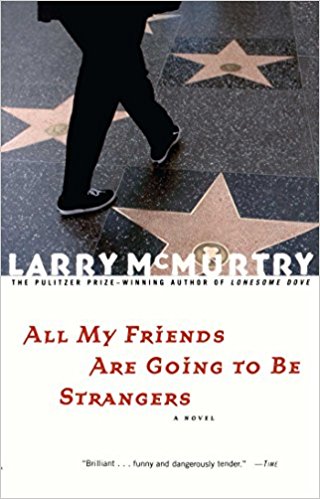
All My Friends Are Going To Be Strangers (2.5) by Larry McMurtry left me feeling mixed at best. On the one hand, I fully understand why so many people resonated with it: it’s a free-wheeling, booze-infused, irreverent road epic centered around an aspiring young author in the lonesome, crowded west. Could there be anything more 1972? Hunter S Thompson meets On The Road meets Rio Bravo. On the other, it is very 1972. Female characters are severely underwritten, hysterical at best, and uniformly in love with our male protagonist. Like so many problematic Murakami heroines, they exist to pine and be pined over, to make love to the hero then step aside once he’s learned his whimsical lesson. All this is intentional, of course. More than many in the era, McMurtry seems to know exactly which tropes he’s plowing through, and the literary conceit (a novelist gathering material for his next work) adds a level of meta fun. In theory, at least. In practice, I couldn’t get past the tropes. Even with its tongue-in-cheek self-awareness and uniquely Texan spin, it’s a story I’ve heard too many times.
“He said there were going to be literary parties. I tried to imagine a literary party and was unable to. It was a very abstract effort, like trying to imagine a triangle or a cube. Wearing a suit made me feel even more abstract. I had a mental picture of me inside my suit, inside a party, inside a building, inside San Francisco. I didn’t know what I was doing, inside so many things that were unlike me.”
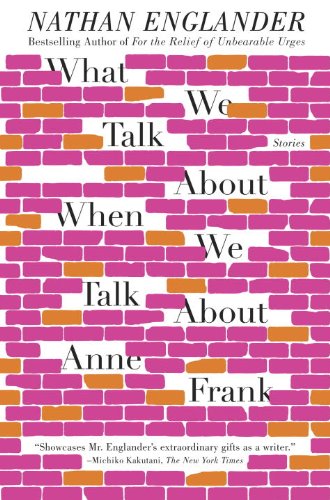
Nathan Englander’s What We Talk About When We Talk About Anne Frank (4/5) is, to me, a wonderful example of the short story form. Englander does for Jewish heritage what Lesley Nneka Arimah does for Nigerian; weaving together a variety of characters (Israeli settler, Brooklyn schule-kid, Hasidic retirees in florida) and genres (sharp comedy, cutting drama, folksy parable) into a single messy tapestry. Or maybe a geological survey, variations on a shared history: here’s the valley where faith becomes cynicism, there’s the idealistic overgrowth some never leave. Each is wonderfully written (and clever to boot), but for my money, the best are the two that toy with autobiography. The first is “The Reader”, a story of an out-of-vogue author performing readings for a lone fan. The second is “Everything I Know About My Family On My Mother’s Side”, about discovering a letter written by his grandfather who’d lost a brother in WWII.
“Forgive the author his relentless commitment. Forgive him his belief that even if the next city promises nothing more than this one old man, still it’s his obligation to drive on. A writer never knows if perseverance is his terrible weakness or his greatest strength. And with all those headlights floating divided in his rearview mirror, Author never can tell which belong to his reader, which pair is his beacon, a North Star, split, cast back, guiding him on.”
“Here is me, fictionalized, sitting on the couch with a letter, written in my grandfather’s hand. I am weeping. I don’t know if I’ve ever seen his handwriting before. I think to call my mother, to tell her what I’m holding. I think to call my brother, or maybe Cousin Jack. But really, more than anyone, I think to call that missing love—that missing lover. Because it’s her I wish were with me; it’s her I want to share it with right now. And more so, to find myself weeping from a real sadness—not anxious, not disappointed, not frustrated or confused—just weeping from the truth of it, and the heartbreak of it, and recognizing it as the purest emotion I’ve ever had. It’s this I want to tell her, that I’m feeling a pure feeling, maybe my first true feeling, and for this—I admit it—I am proud.”
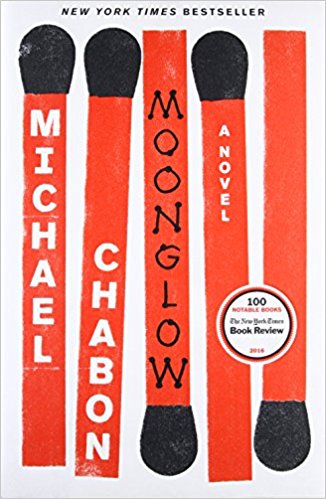
Oh, hey, while we’re on the subject of heavily fictionalized autobiographies about Jewish men learning about their grandfathers’ lives during WWII…Michael Chabon’s Moonglow (5/5) is an absolute joy. I loved his Amazing Adventures of Kavalier and Clay, and I loved it for reasons I could barely explain. Something about his whimsical toying with history, lush descriptive prose (can anyone describe the sky as richly as Chabon?), and unapologetic romanticism — metaphors and plot twists that shouldn’t work but 100% do. Like Mad Men, he is constantly toeing the line between Serious Art and Indulgent Pulp. Moonglow proves that my experience with Kavalier and Clay wasn’t a fluke; it was the work of a studied alchemist. A semi-fictional memoir of Chabon’s rocket scientist grandfather, Moonglow truly has everything: mystery, adventure, philosophy, pop science, soapy drama. It’s a rich character study, a Forrest Gump-esque romp through Americana, a profound meditation on mental illness, and a wildly entertaining history lesson to boot. It’s a book about memory and the craft of storytelling. Also, it’s almost definitely a lie. Or, well, parts of it. All of it? Is the “Michael Chabon” of the story, the author who is compiling his grandfather’s memoir, a total work of fiction? Or is that the deeper lie — hiding behind the guise of fiction to express feelings and motivations which nonfiction has no claim on? This is a book that loves toying with you, and happily lets you in on the process. I don’t care what’s real. For writing like Chabon’s, I’m willing to believe just about anything.
“At the sight of the cover with its grid of colored blocks, the memory of that afternoon returned to me: a slant of submarine light through the eucalyptus outside the guest bedroom, my grandfather’s brown face against a white pillow, the sound of his Philadelphia vowels at the back of his nose like a head cold.”
“The rocket was beautiful. In conception it had been shaped by an artist to break a chain that had bound the human race ever since we first gained consciousness of earth’s gravity and all its analogs in suffering, failure, and pain. It was at once a prayer sent heavenward and the answer to that prayer: Bear me away from this awful place. To pack the thing with a ton of amatol, to hobble it so that instead of tearing loose once and for all from the mundane pull, it only arced back to earth and killed the people among whom it fell, was to abuse it. It was like using a rake to whip egg whites, a dagger to pick your teeth. It could be done, but to do so was a perversion.”
“Most of all he was tired of mourning my grandmother. Even after intermittent full-blown madness had subsided to chronic nervousness and the limitless insecurity common to actors, she had been an exhausting woman to love. But he had loved her no less passionately for the hard work. If there were times when the weight of the secret she carried, whatever it had been, made it impossible for her to love herself and thus to return his love, the fierceness with which she had clung to him even at those moments was recompense enough. It had fed his various hungers. Now there was only the daily scutwork of missing her. He wanted to rest. He wanted, like all the mourners of Zion, to be left in peace.”
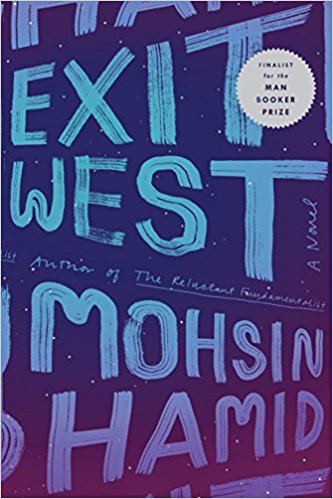
Sometimes you want genre-bending metafiction, and sometimes you crave simplicity. Exit West (4/5) is a deceptively simple little novel. Shortlisted for the 2017 National Book Award, Mohsin Hamid’s latest work is effectively a single question writ large: what would happen in a world without borders? Its protagonists, Nadia and Saeed, are refugees, fleeing an unnamed civil war in an unnamed Middle Eastern city. Their method of transport? Doors. No one knows how. No one knows why. But everywhere on earth, from Tokyo to Marin County, a handful of doors are slowly turning into portals. Lion, the Witch, and the Wardrobe, where Narnia is Anywhere But Home. Migrants hop from city to city, around the globe, seeking safe haven en masse in neighborhoods that never asked — never planned — to shelter them. Some react warmly, others with fear and aggression, often mirroring real-world situations in those same cities today — there’s no mistaking the political statement at play. It’s a powerful metaphor for the modern crisis in Syria, appropriately heavy-handed but never preachy. It’s also a tender love story; or, rather, a story of two people carving out love from the temporary spaces they inhabit. And if Hamid’s writing is sometimes a bit too ornate, tripping over its own attempts to be flowery (some of those “and…and…and…” marathons got exhausting), it’s hard to fault him for overindulgence. This is, after all, a fairy tale. It exists to be heightened.
“Saeed and Nadia knew what the buildup to conflict felt like, and so the feeling that hung over London in those days was not new to them, and they faced it not with bravery, exactly, and not with panic either, not mostly, but instead with a resignation shot through with moments of tension, with tension ebbing and flowing, and when the tension receded there was calm, the calm that is called the calm before the storm, but is in reality the foundation of a human life, waiting there for us between the steps of our march to our mortality, when we are compelled to pause and not act but be.”
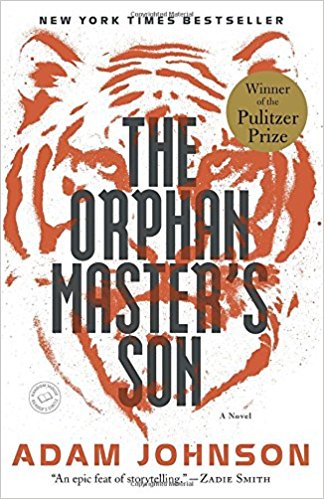
I’d been looking forward to Adam Johnson’s The Orphan Master’s Son (4/5) for a long time, and it didn’t disappoint. In many ways, this is an excellent companion piece to The Sympathizer: set in modern-day North Korea, it tells the story of a man reckoning with, and bruised by, the conflicting narratives of his identity. And it spins that dissociative feeling into a sort of psychological mystery-thriller. Is Nguyen’s Sympathizer a hero or a traitor, a Western sellout or a Communist spy? Is Johnson’s Jun Do an orphan or a willing servant, a patriot humbly aiding his country or a warrior hell-bent on escape? The difference, of course, is that Viet Thanh Nguyen is Vietnamese: Adam Johnson isn’t from North Korea. He is, for obvious reasons, an outsider. Given that status, Johnson takes what I consider to be an extremely bold stance, diving headfirst into extremely difficult (and easily abused) territory: soul-crushing propaganda, unspeakable famine, dehumanizing prison camps, perils of defection. These ought to be things that come from personal experience / tragedy, or else handled with extreme subtlety — and The Orphan Master’s Son sure as hell isn’t subtle. It’s nightmarish, exhausting, (arguably) manipulative, and yet, somehow, masterful. I was amazed by the scope of his vision, the way he pieced together what little we know about life inside the DPRK into an epic, fleshed-out narrative. The ingenuity involved in making this is just staggering. It reminded me, a bit, of Inglorious Basterds: wild blending of history and wish-fulfillment fantasy, heightened to a pulp but never to the detriment of truth. I don’t know if it’s remotely accurate, or fair. I do know it’s brilliant.
“The Orphan Master had bent his fingers back and removed food from his very hand. And the other boys at Long Tomorrows, as they died in turn, stole from him the notion that your shoulder should be turned against death, that death shouldn’t be treated as just another latrine mate, or the annoying figure in the bunk above who whistled in his sleep. At first, the tunnels had given him nothing but terror, but after a while, they began to take it away until suddenly gone was his fear, and with it inclinations toward self-preservation. Kidnapping had reduced everything to either death or life. And the mines of Prison 33 had drained, like so many bags of blood, his ability to tell the difference. Perhaps only his mother had taken something grander by depositing him at Long Tomorrows, but this was only speculation, because he’d never found the mark it had left … unless the mark was all of him.”
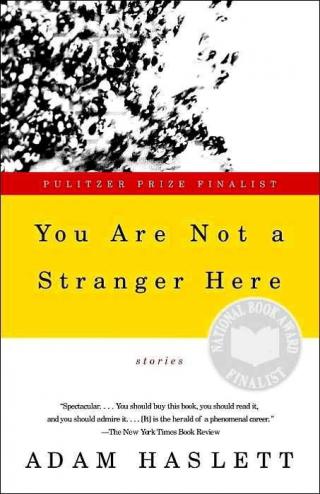
Adam Haslett does one thing incredibly well: he writes about mental illness with extreme specificity. I don’t know that he does it accurately; I only know that he does it in a way I believe. After reading Imagine Me Gone, his Pulitzer-nominated family saga, I wrote that “Haslett’s isn’t a story of mental illness deflected by humor; it’s a story about how that same illness can be simultaneously tragic and hilarious, can inform a personality, can become a thing you miss when it’s finally gone.” Going back to his debut collection, You Are Not A Stranger Here (4.5/5), I can trace the root of those instincts. This is exactly why I love short story collections from first-time authors: so much messy passion, and stubborn resolve, finally given an outlet. We meet a septuagenarian with delusions of grandeur, a teenager coping with tragedy through pain, a son struggling to piece together the root of his father’s mania. Like Imagine Me Gone, it has so much to say about mental illness, and the way it flows through generations like an unwanted birthright. It’s also, despite the subject matter, a total blast — devastating and fun in equal measure. It’s hard to explain that dynamic unless you dive in, but I loved every one of these stories.
“…sitting in the car on the motorway north, Samuel studied the back of his father’s head, his shoulder, the thick branch of his upper arm, the dark-haired forearm, his hand gripping the knob of the gearshift. The tired look on his face when he came through the back door from work, the distracted way he ate his dinner, the blur of weekend afternoons when he napped on the front hall couch, all this disappeared when he got behind the wheel of the car. He spoke more, seemed alive in a different way. Samuel thought of this as his father’s real self that for some reason only appeared in between places.”
“They sit on the couch a while, listening to Lou Reed singing from downstairs. The borderline defeat in his voice seems alien to the objects in the room: the coffee table books, the dried flowers, the waffle-patterned bed skirts, the beige clock and ruffled curtains—these things they’re supposed to want one day. The objects persist blandly in the bland intention of their owners. For Ted, they have the sadness of the things in his own house, the maple living room set his parents bought the year he was born, the dining room table they used to sit at when he was younger, reminders of old marital hope. He and Lauren are just florid detritus in a room like this, drifting past on the dead river of time that never ceases here.”
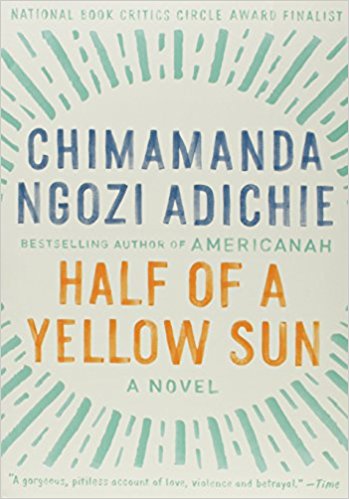
It’s irresponsible to draw a conclusion from two data points, but I’m going to go with my gut on this: Nigerian women are uniquely good at writing fiction. Half of a Yellow Sun (4/5), Chimamanda Ngozie Adichie’s epic saga of the Nigerian Civil War, is intimate and expansive, instructive and poetic. When I say “instructive”, I mean that quite literally: beside the epic drama, Adichie is giving a serious history lesson from scratch. Don’t know what Biafra is? Can’t place Lagos on a map? By the end of the book you will, and it won’t feel hamfisted or pedantic. Narrated from the point of view of three interrelated characters, Adichie breaks the story of the war in two parts: the simmering tensions of the early 60’s, and violent response of the late. This isn’t a particularly showy work — the writing rarely draws attention to itself in the way much on this list does — but the narrative reveals itself at exactly the right pace. Like Hamid with Exit West, Adichie instinctively knows when to go big and when to focus on tiny, interpersonal details; veering between the two in a way that never loses our attention. A classic.
“And in his lucid moments, death occupied him. He tried to visualize a heaven, a God seated on a throne, but could not. Yet the alternative vision, that death was nothing but an endless silence, seemed unlikely. There was a part of him that dreamed, and he was not sure if that part could ever retreat into an interminable silence. Death would be a complete knowingness, but what frightened him was this: not knowing beforehand what it was he would know.”
“She wanted him to truly talk to her, help her to help him grieve, but each time she told him, he said, “It’s too late, nkem.” She was not sure what he meant. She sensed the layers of his grief—he would never know how Mama had died and would always struggle with old resentments—but she did not feel connected to his mourning. Sometimes she wondered if this was her own failure rather than his, if perhaps she lacked a certain strength that would compel him to include her in his pain.”

Speaking of 21st century classics: Marilynne Robinson’s Gilead (4.5/5). Wow. How can I describe it? Wendell Berry meets memoir meets theological treatise? This book singlehandedly lowered my blood pressure by about 20%. It’s a smoldering rumination on life, mortality, family, and faith — this is probably the best treatment of spirituality I’ve ever seen in a work of modern lit. Gilead is framed as as a single, long letter, from dying reverend John Ames to his future adult son. The conceit gives Robinson free rein to veer into whatever territory she’d like: his thoughts on the afterlife, memories from his childhood, the way fog rolls in over the prairie just so. “Pastoral” and “meditative” are words that come to mind: with its depiction of a small Midwestern town at the turn of the century, Gilead is as much an ode to solitude as it is a story with somewhere to go. That might sound like a bore (and, in lesser hands, it would be), if not for Robinson’s uncanny sense of character. Authors often talk about characters being revealed rather than discovered, and I think I finally know what they mean. Reverend Ames is, as far as I’m concerned, a very real person with seven real decades of hard-won wisdom to impart on his son. And, by extension, on us. His memories are real and tender, and his theology has been wrestled with for a lifetime. By the end of the book, I was smiling at his tics as if I’d known him my whole life. It’s an incredible literary accomplishment.
“‘It don’t matter.’ It was as if she were renouncing the world itself just in order to make nothing of some offense to her. Such a prodigal renunciation, that empty-handed prodigality I remember from the old days. I have nothing to give you, take and eat. Ashy biscuit, summer rain, her hair falling wet around her face. If I were to multiply the splendors of the world by two—the splendors as I feel them—I would arrive at an idea of heaven very unlike anything you see in the old paintings.”
“Once when Boughton and I had spent an evening going through our texts together and we were done talking them over, I walked him out to the porch, and there were more fireflies out there than I had ever seen in my life, thousands of them everywhere, just drifting up out of the grass, extinguishing themselves in midair. We sat on the steps a good while in the dark and the silence, watching them. Finally Boughton said, “Man is born to trouble as the sparks fly upward.” And really, it was that night as if the earth were smoldering. Well, it was, and it is. An old fire will make a dark husk for itself and settle in on its core, as in the case of this planet. I believe the same metaphor may describe the human individual, as well. Perhaps Gilead. Perhaps civilization. Prod a little and the sparks will fly. I don’t know whether the verse put a blessing on the fireflies or the fireflies put a blessing on the verse, or if both of them together put a blessing on trouble, but I have loved them both a good deal ever since.”
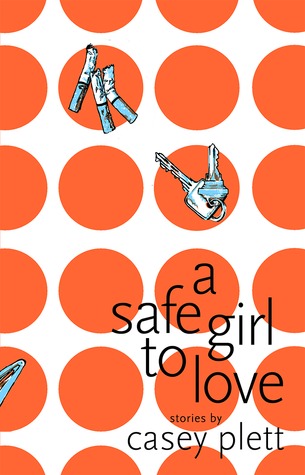
I’ve probably read more fiction in 2017 than in any five-year period before it. The catalyst? A particular moment when I realized that, despite a professed love of literature, I couldn’t name three modern female authors I enjoyed. Not even loved! Just enjoyed. I was ashamed at how narrow my world was; how easily I could read and re-read the same handful of neurotic white dudes (which are still a more-than healthy part of my diet, of course) without even considering that other voices might be equally worth my time.
All that to say, one of the great perks of this year has been discovering my own massive blind spots. If the magic of fiction is getting to inhabit a perspective you’ve never lived, this year has brought a ton of new perspectives to the table. Casey Plett’s A Safe Girl to Love (4/5) is a wonderful example of that perk. Her stories revolve around trans women, and — much like Englander’s collection — that’s just about the only thread they have in common. Young love in Brooklyn, a mother and daughter in Eugene, house parties in North Dakota, Mennonites in Winnepeg. Some are comfortable, some aren’t. Some are passing, some don’t care, and others telegraph not-caring to avoid that patronizing look of reassurance by strangers. Some are in desperate need of an encouraging word. Far more cringe at encouragement, at being called “brave”, as if their entire existence were in service to someone else’s inspirational suffering porn. Yet, reading this book, I honestly can’t find a better word to describe Plett’s writing. She approaches difficult subjects with candor, humor, and a fearless refusal to tidy what ought not be tidy. There are no halos to polish here; we meet her characters where they’re at, raw and unexceptional and human. What a refreshing read.
“If she says, “I’m sorry,” listen. If she tells you a story in kind, listen. If she says, “I wish I could protect you,” hunch your knees and fold your body in and say you wish she could too. And listen. If she tells you how to use pepper spray or any such thing, small and simple and solid, listen. If she uses the teaching-sixteen-year-olds-voice again, if she snorts and says, “Sure you want to do this?” if she bitterly says, “Welcome to being a woman!” if she says, “Hon, I know exactly what you’re going through,” swallow and shutter windows in your heart. Need her with an intensity that has no exit. Give. Give. Give. And if she says, “But, like, you’re happy now… right?” say oh, well, of course! Say you feel great. Say you feel better every day. She’ll beam and say she misses her country boy sometimes but she’s so so proud of you. You’ll shine through.”
“[I] would rather wait for him to die, she said. I honestly don’t want to know how he’d react if I came out to him. I don’t know if he’d cut me out. Maybe he would. Maybe he wouldn’t. But I don’t want to find out. I don’t want to see him looking at me like a space alien, and I don’t want to get letters in the mail about my soul, I don’t want to hear from all thirty of my relatives about how sad I’m making him. And I doubt he would cut me out entirely. He would probably still let me in the house, though I doubt I would be invited, exactly. But it’s not like I would stop calling and going up there every couple months. I wouldn’t care how shitty he’d be, Carla, I’d still go. I’ll never not love him, I’ll never leave him. He’s sick. He’s old, I can fulfill one last responsibility as a grandson. That’s a thing I can do, I can actually do it. I have to and I will do it.”
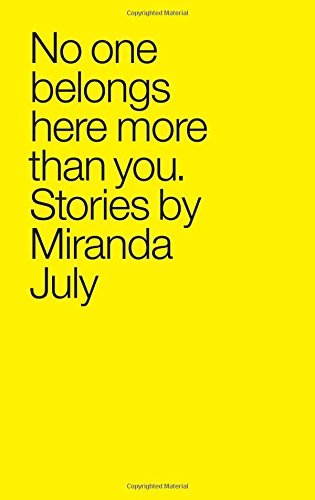
After so much heavy material, it felt right to end this sprint with something light. As a budding indie film snob, I really enjoyed Me and You and Everyone We Know. So I was excited to check out Miranda July’s debut collection No One Belongs Here More Than You (3.5/5), a work that seems to spur adoring fans and outraged critics in equal measure. My impression was mixed, but ultimately positive. Putting on my critical hat, I could say that July’s tone hasn’t aged particularly well: it’s a bit twee, overwritten, and edgy-for-edginess’ sake in a way that was rare in 2007 but abundant today. It’s also a bit irresponsible with certain themes (a handful of borderline-pedophilic twists are played for shock, but come off as cringey and unnecessary). But on the whole, criticism be damned. This is a charming, bizarre little collection which is fun far more often than it’s not. Hearing it narrated by July, I couldn’t shake a comparison to Garfunkel and Oates or Portlandia — that brand quirky self-awareness which makes trying-too-hard cave in on itself and become a part of the joke. Her primary strength, in my mind, is less as a novelist than a humorist; sharing observations about daily life that happen to be fictional, but might as well not. An aspiring writer finds herself awkwardly standing in Madeline L’Engle’s pillow-filled living room; an aging factory worker falls in love with someone’s fictitious sister; two women share a hug during a New Age-y self help class on romance. At its best, it’s surprisingly moving (see: “Something That Needs Nothing”, a coming-of-age story centered around an uncomfortable female friendship); at it’s worst, it’s inoffensive and breezy. An enjoyable read if you want something light.
“The snaps on our jeans pressed into each other and our breasts exchanged their tired histories, tales of being over- and underutilized, floods and famines and never mind, just go. We wetted each other’s blouses and pushed our crying ahead of us like a lantern, searching out new and forgotten sadnesses, ones that had died politely years ago but in fact had not died, and came to life with a little water. We had loved people we really shouldn’t have loved and then married other people in order to forget our impossible loves, or we had once called out hello into the cauldron of the world and then run away before anyone could respond. Always running and always wanting to go back but always being farther and farther away until, finally, it was just a scene in a movie where a girl says hello into the cauldron of the world and you are just a woman watching the movie with her husband on the couch and his legs are across your lap and you have to go to the bathroom. There were things of this general scale to cry about.”
“He used to rent two offices, his own and a tiny one for me. But then he said things were getting tight and we should share an office. Tight. He adds thirteen to seventy-two. Two plus three is five, check the e-mail, one plus seven is, check the e-mail, eight, check the e-mail, which comes to a total of, who the hell am I anyway, eighty-five. This is how he dismembers his day, in the most painful way, moment by moment. A bigger man would just shoot it, put it out of its misery. Or a better accountant might actually account for something instead of hiring another, slightly cheaper accountant to do the accounting, and skidding by on the difference.”
